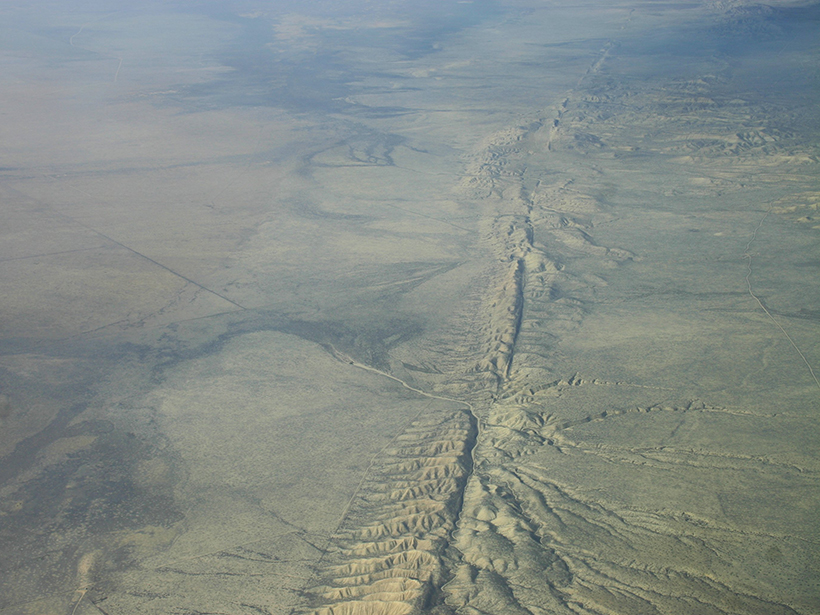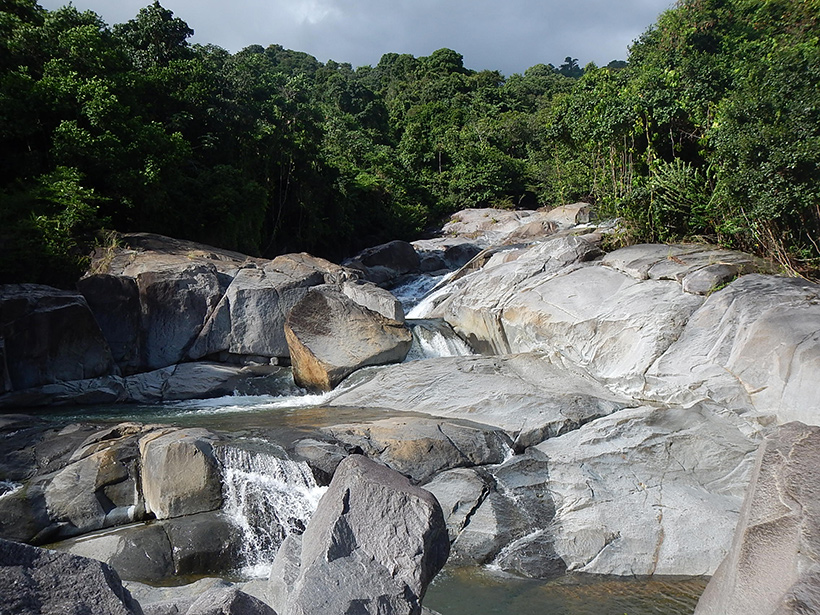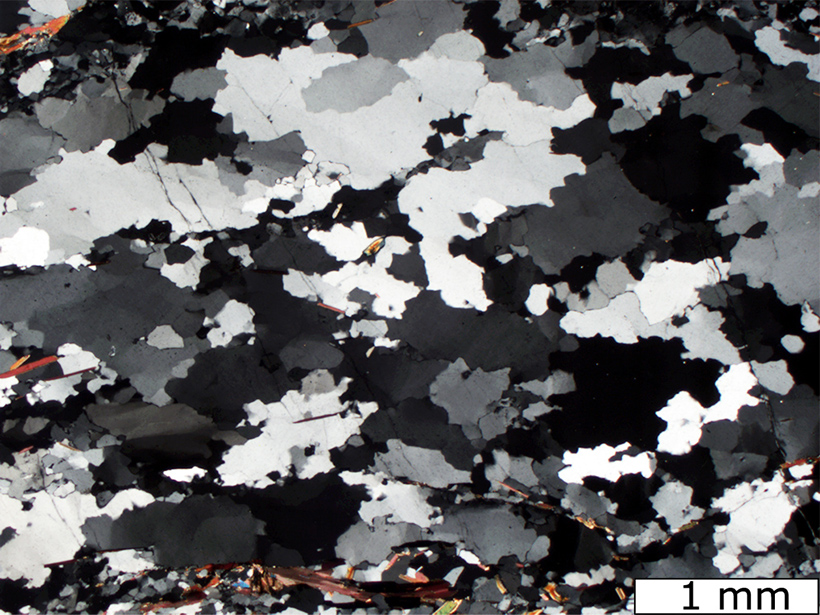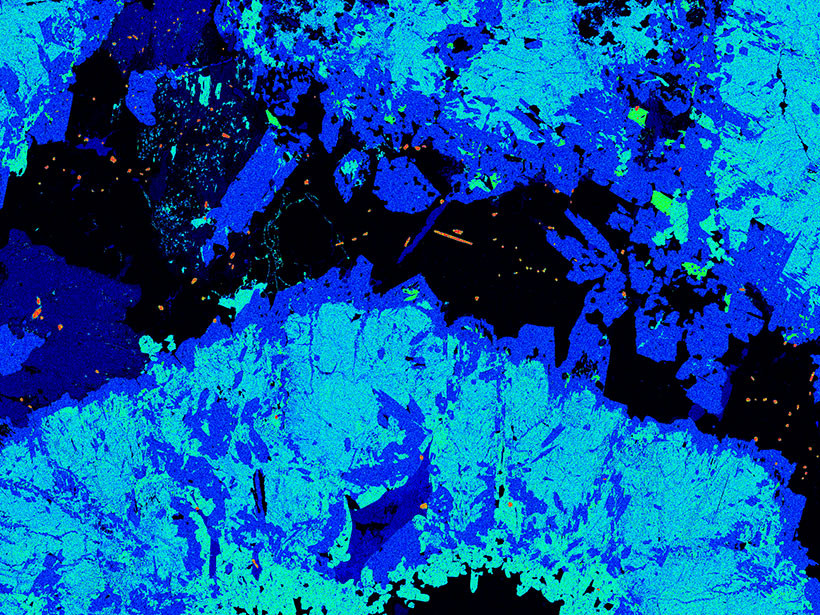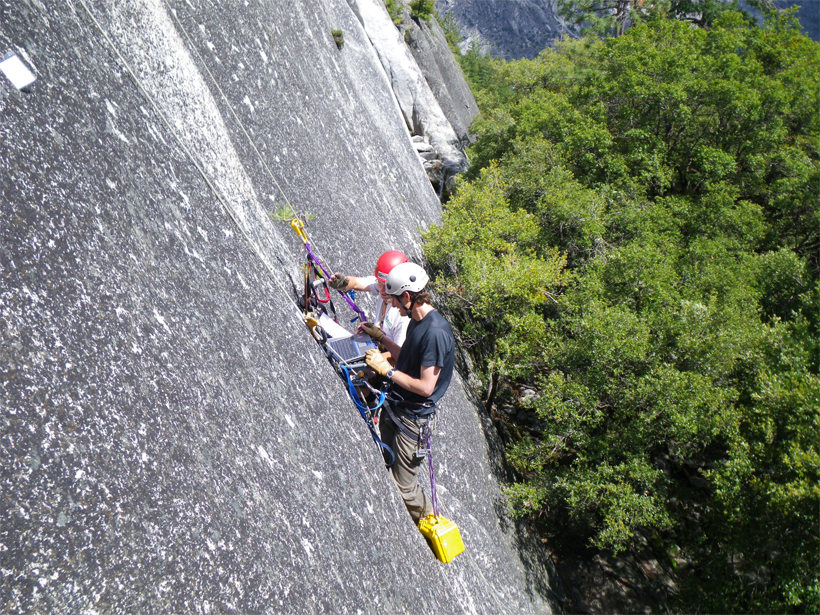When the gravity of the Sun and Moon causes Earth's crust to bulge every 2 weeks, slow-moving earthquakes proliferate in the lower reaches of the San Andreas, a new study finds.
geology
Earth Fissures May No Longer Get Mapped in Arizona
A program that monitors giant cracks in the ground that suddenly appear after heavy rain could become a casualty of budget cuts to the Arizona Geological Survey.
How Do Tropical Forests Slow Knickpoints in Rivers?
Using Puerto Rico's Luquillo Mountains as a case study, scientists use the region's geological history to study how knickpoints—areas where there's a sharp change in the river's slope—move over time.
Despite Dryness, Quartz Grains Can Deform in Earth's Crust
A comparison of water content in undeformed and deformed quartz indicates that grains may change shape via weakening processes that cannot be duplicated in laboratory experiments.
The Broken Bridge Between Geology and Museums
For lack of funding, irreplaceable collections of mineral specimens may be lost. The Earth science community must rethink the role of museums as archives and outlets for information.
Polarity Reversals in the Earth’s Magnetic Field
Studies of geomagnetic polarity reversals have generated some of the biggest and most interesting debates in the paleomagnetic and wider solid Earth geophysics communities over the last 25 years.
Gypsum Forms in an Unexpected Way
Scientists spot the "stem cell" building blocks that lay the foundation for gypsum's formation.
A Warm Day Can Trigger Rockfalls
Research on a cliff face in Yosemite National Park finds that when rockfalls happen without an obvious cause, ordinary warming in the Sun could be the culprit.
Can Carbon Dioxide Trigger Geyser Eruptions?
Researchers looking at geyser discharge water in Yellowstone National Park found that dissolved carbon dioxide could be involved in a geyser's eruption.
Asphalt Volcanoes Erupt in Slow Motion
Natural asphalt seeps on the ocean floor provide a stable home for diverse marine life that sequesters greenhouse gases.

